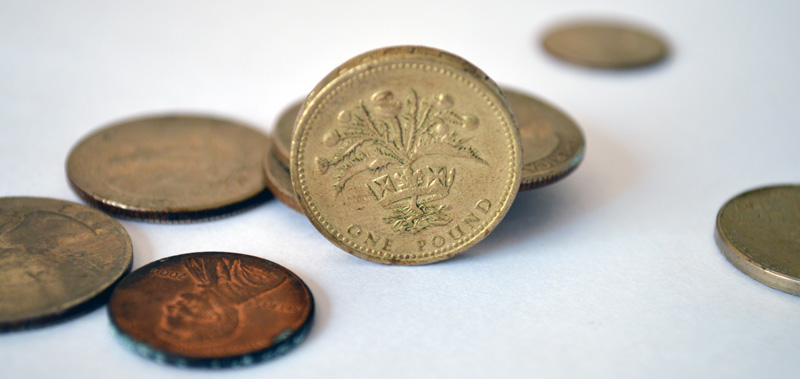Distance Selling - What you need to know
Most businesses are selling online, and with advancing technology and more stable e-commerce platforms, its clear to see why. But as with any other form of selling, there are rules that apply.
Keep in mind that these rules also apply when selling goods or services over the phone.
Which regulations apply to distance selling?
The main regulation you need to be aware of when distance selling is the Consumer Contracts Regulations 2013.
This regulation only applies to services sold to consumers not businesses. So, if you're a B2B seller, then you have no need to worry.
What information do I need to provide to the consumer?
Before and during the point of sale, you need to provide the following information to the consumer to guide their decision about the sale:
- Information about your business:
- Your trading name
- Your address
- Your contact details
- A description of the goods, digital content or services, including how long any customer commitment will be, for example, if theres a subscription.
- The cost for the goods, digital content or service, or how this will be calculated if it depends on any variables.
- Cost of delivery and cost of returns or cancellations. If you do not state who will pay postage for the return, then the customer has no obligation to pay.
- Details on the right to cancel, as well as a method of cancellation for the customer to use.
- If you are providing software or digital content, you must state the hardware compatibility.

A customer has placed an order now what?
Once an order has been placed, there is more information you need to convey to the customer:
- Details of what they have purchased
- The total cost
- Arrangements for delivery
- The minimum duration of any contract and arrangements for terminating the contract,
how and when they can cancel an order, and who pays for returning any goods - An address where complaints can be sent
- Any guarantees or after-sales services you offer
- Conditions for terminating contracts
- Any helpline call charges that are more than calling an 01, 02 or 03 number, or a mobile or free number
A customer has decided to send the goods back
If a customer decides that the goods aren't what they want, then they have from the moment they order the goods until 14 days after they receive them to notify you, known as the cooling off period.
Once the customer has notified you that they no longer want the goods, they have another 14 days on top of that to return them.
If the customer has ordered multiple items from you, the cooling off period starts from when they receive the last batch of their items.
Are there any exceptions?
You need to be aware of seven main exceptions to the cooling off period. These are:
- Personalised goods
- Transport services
- Hotels
- CDs, DVDs or software where the seal has been broken
- Perishable items
- Goods which have been mixed inseparably from other items after delivery
- Items which have a seal for health and hygiene reasons thats been broken

Does the customer get a refund?
Simple answer. Yes
Longer answer. They should receive the refund within 14 days after you receive the items back. If you have not received the items, the customer can provide proof that they were sent, for example, a receipt from the Royal Mail. Whichever is sooner.
A deduction from the value can be made if it is deemed the handling of the goods by the customer was more than necessary. A rule of thumb is that the goods shouldnt be handled any more than they would have been in a physical shop.
It's deemed acceptable for a seller to refuse a refund based on the product being used. Generally, products would need to be returned unused for a refund. It's usually helpful to state this in your terms and conditions, too.
Should I refund the cost of delivery?
Again, yes.
However, you only need to refund the basic cost. So, for example, if the customer paid for express or next-day delivery, you only have to refund the basic delivery cost.
What happens if the customer wants to cancel a service?
The cooling off period still applies to services, so the customer still has the right to cancel within 14 days of entering into the contract.
You shouldn't start providing the service before the 14-day cancellation period has ended. However, the customer can request the service to be provided during this time. Alternatively, you can include it in your Terms and Conditions.
If the customer requests a service starts straight away, they will still have the right to cancel, but they must pay for the value of the service that is provided up to the point it is cancelled.
For example, if a consumer buys a gym membership and starts using it from the first day but then changes their mind within the cooling off period, they can be refunded but could be charged for the amount of time they have used in the gym.
What if I provided the service in full?
The customer loses the right to cancel the service if it has been provided in full before the 14 days elapse.
Exemptions
There are some contracts where the customer won't have a right to cancel a service. For example, hotel bookings, flights, car hire, concerts and other event tickets, or where you are carrying out urgent repairs or maintenance.
A customer wants to cancel a digital download
The Consumer Contracts Regulations contain specific provisions for digital content.
Retailers shouldnt supply digital content, such as music or software downloads, within the 14-day cancellation period unless the consumer has given their express consent to this happening.
The consumer must also acknowledge that once the download starts, they will lose their right to cancel.
If a consumer doesn't give their consent, they have to wait until the cancellation period has ended before they can download the digital content.
This is to ensure the digital content is what they want before downloading it.
Pre-ticked boxes
You cannot charge a customer for any items included in the sale which were pre-selected during the ordering process rather than the customer choosing to add them to their basket.
For example, retailers are not allowed to charge for an extended warranty if it was added to the customer's basket as a result of a pre-ticked box.
If a company does charge a customer in this way, they are entitled to a refund.
Delivery of goods
The Consumer Rights Act, which came into force on 1 October 2015, says that the retailer is responsible for the condition of the goods until the goods are received by the consumer, or by someone else they have nominated to receive them on their behalf like a neighbour.
This means that the retailer is liable for the services provided by the couriers it employs - the delivery firm is not liable.
There is a default delivery period of 30 days during which you need to deliver unless a longer period has been agreed.
If the customer's delivery is later than agreed and it was essential that it was delivered on time, then the customer has the right to terminate the purchase and get a full refund.
If the delivery isn't time essential but another reasonable delivery time can't be agreed, the customer is still within their right to cancel the order for a full refund.
Returning faulty goods
If the customer has received faulty goods and wishes to return them, The Consumer Contracts Regulations are in addition to their other legal rights.
So, if the goods are faulty and don't do what they're supposed to or don't match the description given, they have the same consumer rights under the Consumer Rights Act as they have when buying in store.
Excessive call charges
You cannot use a helpline number that charges in excess of the basic call rate.
For example, if a customer calls to complain, inquire about an order, or cancel an order, you can't use premium rate numbers.
If a customer does have to call you on a surcharged number about goods or services they have bought, or have agreed to buy, they have the automatic legal right to claim back the surcharge from you.
These rules do not apply to sales calls.
This is for general guidance only, and professional guidance should be sought before acting on the information presented.
The Company Wizard has no affiliation with Which? and can have no guarantee over the accuracy of the information on their website.
- 17 Apr 2025 - Do I need an accountant, or can I just use software?
- 19 Mar 2025 - What if I can't pay my self assessment bill?
- 06 Mar 2025 - How do I make an employee redundant?
- 24 Feb 2025 - Is it the right time to get a dedicated office?
- 21 Jan 2025 - How to make your money work for your business
